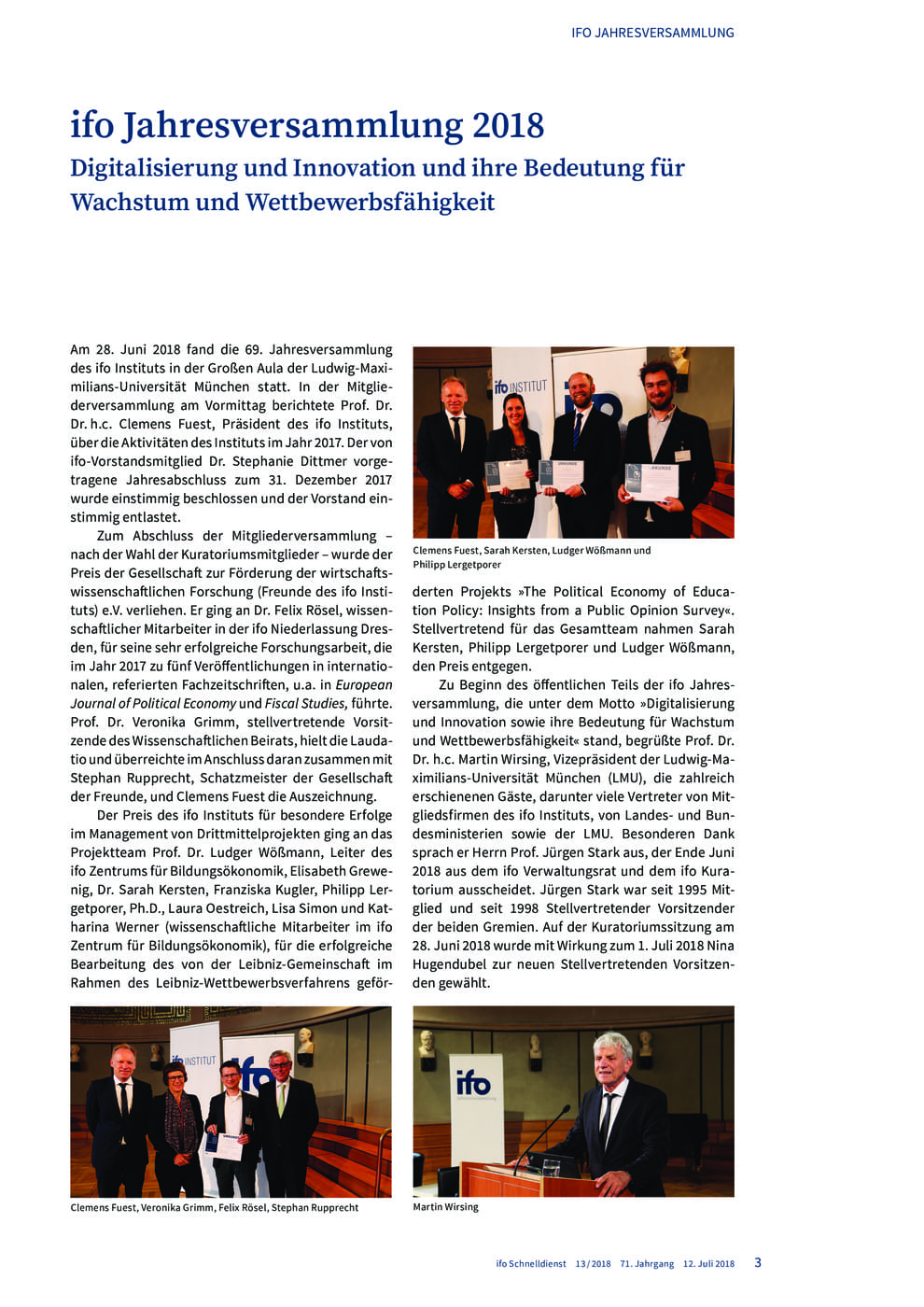69th Annual Meeting of the ifo Institute – Digitalisation and Innovation and their Importance to Growth and Competitiveness
ifo Institut, München, 2018
ifo Schnelldienst, 2018, 71, Nr. 13, 03-13

The 69th Annual Meeting of the ifo Institute took place on 28 June 2018 in the Great Hall of the University of Munich (LMU). Martin Wirsing, Vice-Chancellor of the LMU, opened the public part of the meeting entitled: “Digitalisation and innovation and their importance to growth and competitiveness” to the large number of guests attending. ifo President Clemens Fuest subsequently presented this year’s keynote speaker Gisbert Rühl, Chairman of the Board of Klöckner & Co SE. Gisbert Rühl started his speech by looking at the topic of “platforms.” In his view, Germany and Europe have not taken the initiative in the set up and operation of consumption-related, internet-based platforms like Google, Facebook and Netflix, but in the field of manufacturing 4.0 Germany still stands a very good chance of taking the lead. These chances are improved by the fact that the structure of Germany’s manufacturing industry is characterised by medium-sized companies and innovative large companies. During the rest of his speech Gisbert Rühl explained how progress with digitalisation has been made at Klöckner. In his speech Clemens Fuest looked at aspects of the economic changes triggered by digitalization in the field of taxation policy, which is moving in completely the wrong direction. Digitalisation is undoubtedly bringing economic changes like, for example, the rising importance of data to value creation and the growing importance of intangible economic goods with high mobility. Moreover, digital business models often do not require a firm‘s physical presence in sales markets. There are also concerns over the growing market power of digital companies, or a transfer of power away from consumers to companies. The European Commission is now driving forward the project of a Digital Service Tax to offset this phenomenon. The Commission assumes that there is a dramatic difference in the tax treatment of companies with traditional business models and digital players because write-off rules for digital and non-digital goods, for example, are different. According to Fuest, however, this argument is “cautiously expressed and poorly supported” and constitutes no basis for introducing a new compensatory tax. The subsequent expert panel, in which Clemens Fuest and Gisbert Rühl were joined by Irene Bertschek, ZEW, Mannheim, Rupert Lehner, Bitkom, and Friedrich W. Hesse, Leibniz-Institut für Wissensmedien and Vice-President of the Leibniz Association, debated the challenges and implications of digitalisation in greater depth. The outcome of their discussion was that although digitalization may represent a major challenge, especially for a country like Germany with an ageing population, the opportunities that it offers outweigh the drawbacks. Outlining these advantages helps people to overcome their fear of digitalization and adapt to changes, which they are more than capable of doing. We need to start working and experimenting with new tools.